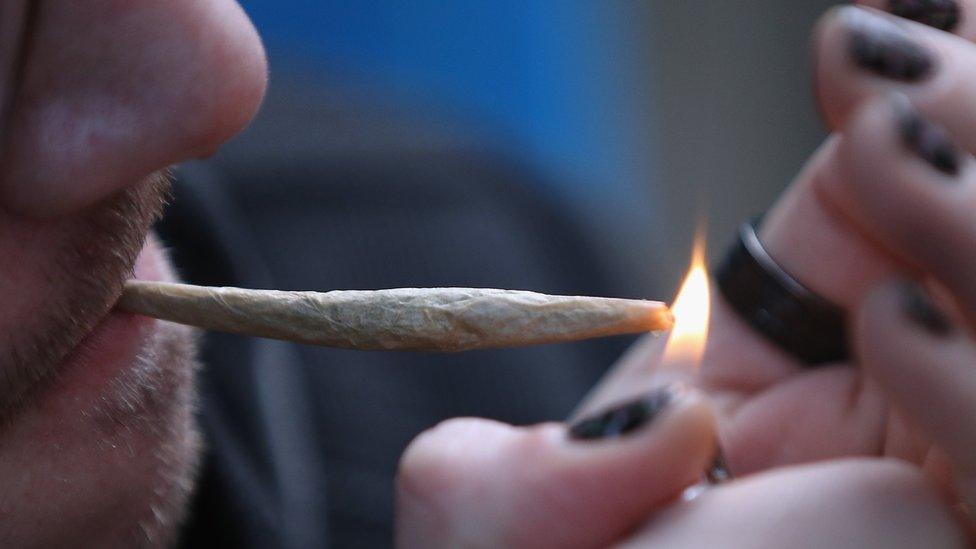Police expand use of overdose life-saver drug Naloxone
- Published
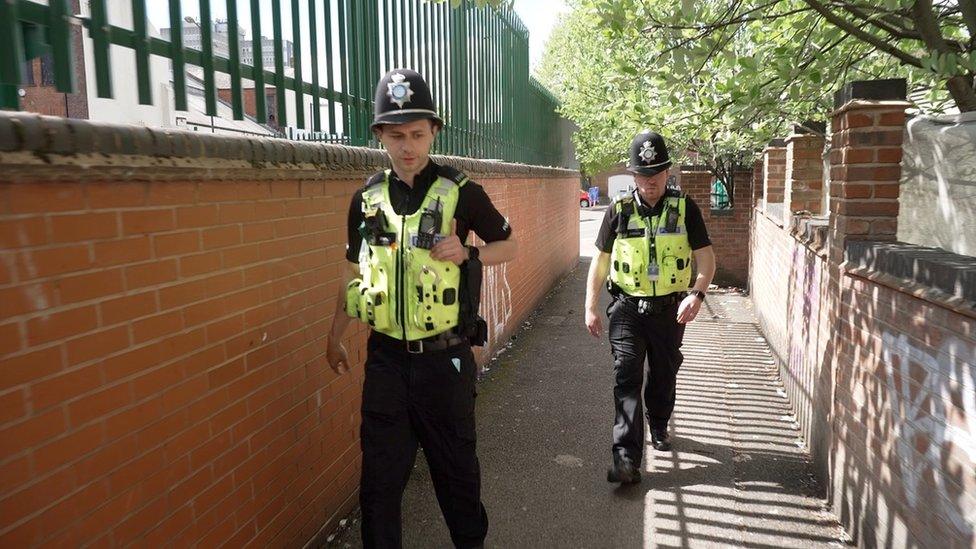
The first UK police force to pilot its officers carrying a "life-saving" drug that can temporarily reverse overdose effects is widening the roll-out.
After 52 officers in Birmingham took part in a trial, West Midlands Police this week ran its first in-person training of police constables who patrol Walsall town centre.
It is the latest stage in plans to see Naloxone used across the entire force.
But officers' representatives say such a role is better left to paramedics.
West Midlands Police Federation says it is concerned a drug user could still die after an officer attends to them, leading to a lengthy and stressful investigation for its members.
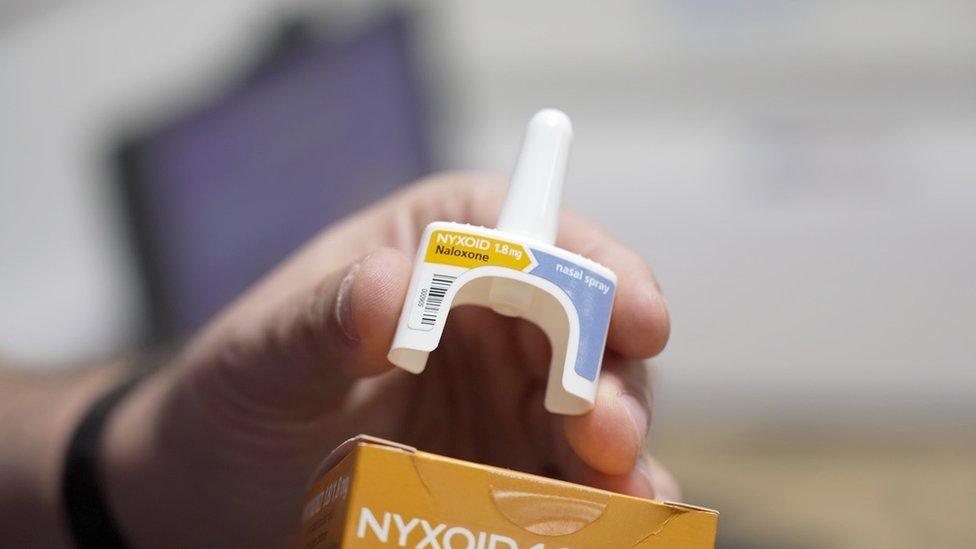
West Midlands Police has been trialling the use of Naloxone - carried in a nasal spray form by its officers - since 2019.
It is part of a less punitive set of policies towards drug addicts pioneered by the area's outgoing Police and Crime Commissioner David Jamieson.
A video shot by a West Midlands Police constable wearing a body camera shows an overdosing drug user in Birmingham city centre being brought back from the brink after being given Naloxone.
It is thought to be the first time in the UK that such an incident has been captured on film.
'Priority is preserving life'
The pilot has just been expanded to Walsall where the first in-person training session for frontline officers in the town, led by the drug treatment charity, Change Grow Live, has taken place.
It is still voluntary for police officers to carry Naloxone at the moment and the officers in Walsall were therefore, perhaps unsurprisingly, positive about the addition to their kit.
PC Harry Simkin says: "The priority is preserving life. In that moment, the focus isn't going to be 'they are a drug user or they have done something illegal', the focus is making sure their life is preserved."
Recovering drug user Andrew personifies why that approach may be right.
He spent many years addicted to heroin and crack, a period of his life he describes as "horrendous".
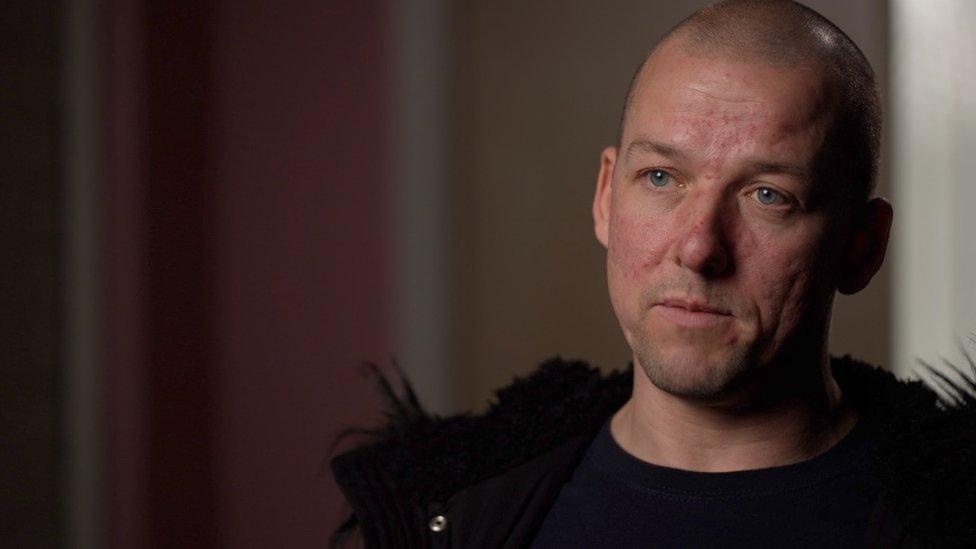
Recovering drug user Andrew: "I'm very thankful that the police are going to be using it in the future"
In 2016 he took a massive overdose of both drugs and would have died if a fellow user had not administered Naloxone, which has for some time been distributed to users and their families and associates.
"It felt like being given an electric shock," he says.
"It brought me around immediately and saved my life. So I'm very thankful that the police are going to be using it in the future."
Although at the time, as he lay on the floor of his flat, Andrew was not as thankful.
"I was trying to kill myself to be honest, I'd got to that point. I was in such a dark place that I couldn't do it any more."
Worries for ambulance crews
For some, giving Naloxone to police officers is controversial.
The Police Federation - which represents rank and file officers across England and Wales - has said the line between its officers and paramedics should not be blurred - and that the latter are best to respond to overdose incidents.
The local West Midlands branch supports those of its members who choose to carry Naloxone and are already on patrol with the kits but concerns still remain.
Local federation chairman Jon Nott worries the "overstretched" ambulance service could delay sending to an overdose if they know that the police are there with Naloxone.
He also wants greater protections for officers.
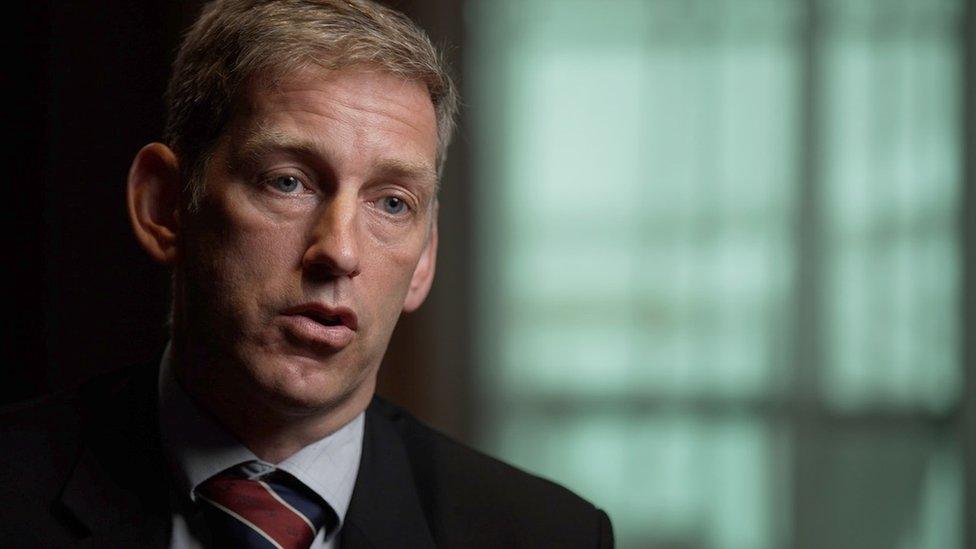
Police Federation representative Jon Nott has concerns over the pilot in the West Midlands
"When we've administered the drug and the individual comes around, they can sometimes be unpredictable," he says, adding that the responding officer's safety could be jeopardised "if the individual starts to lash out because they're not aware or they're a bit delirious".
The West Midlands branch of the federation also fears what would happen if the drug user died after the officer has given Naloxone.
"Our concerns are that it will be treated as a police contact death and therefore, rightly so, there has to be an investigation.
"So you've got the individual officer who is trying to deal with the fact that they've not been able to save somebody's life, compounded on top of a lengthy investigation into any possible wrongdoing, when all they've tried to do is save somebody's life."
'Only have minutes'
Other UK police forces have now started to trial the use of Naloxone.
It is being piloted by officers in Scotland and North Wales - and in Cambridgeshire, where in early May for the first time in that area police saved a drug user's life by administering it.
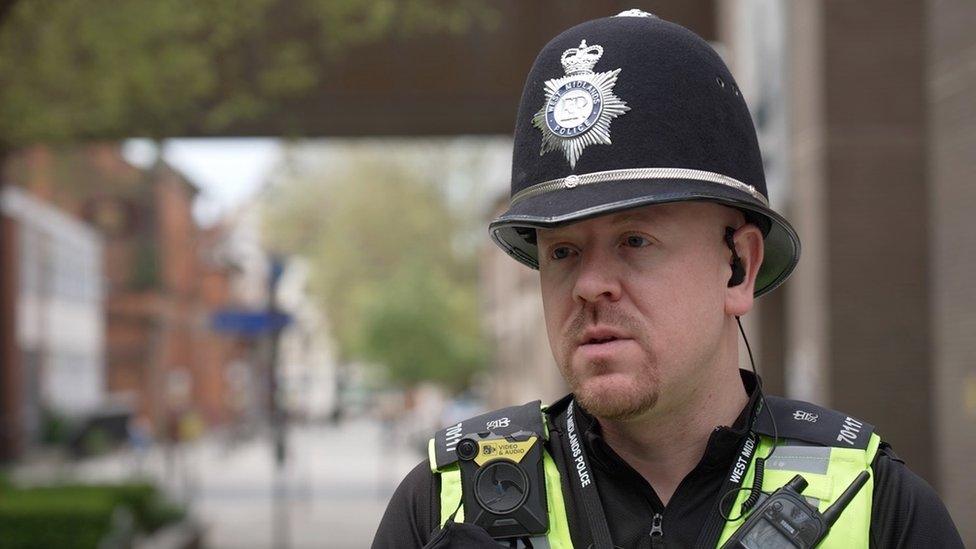
PC Phil Poxon described Naloxone as "an additional life-saving piece of equipment"
For PC Phil Poxon, who attended the Walsall training and went straight out on foot patrol in the town centre, carrying Naloxone makes sense.
He says: "If we come across a victim of a drug overdose, we have got minutes. This has given us that additional life-saving piece of equipment that we can administer and hopefully save their life".
His colleague, PC James Whild, who joined the force on a graduate scheme because he wanted to be part of the Naloxone programme, rejects the idea that police should not be supporting drug users.
"I feel the death penalty is too harsh," he says. "I'm happy to save anyone's life while I'm on duty."
It is up to chief constables to decide whether to equip officers with Naloxone.
The Home Office told Newsnight it was spending an additional £80m on drug treatment services in England, adding that a separate £28m three-year project combining policing with treatment and recovery services "includes the distribution of the life-saving overdose medication".
It said: "The government continues to work to assess how we can allow more services to easily distribute Naloxone and will provide more detail in due course."
Watch the report on Naloxone on BBC Newsnight on BBC Two at at 22:45 BST on 12 May, or catch-up later on iPlayer
Related topics
- Published17 April 2021
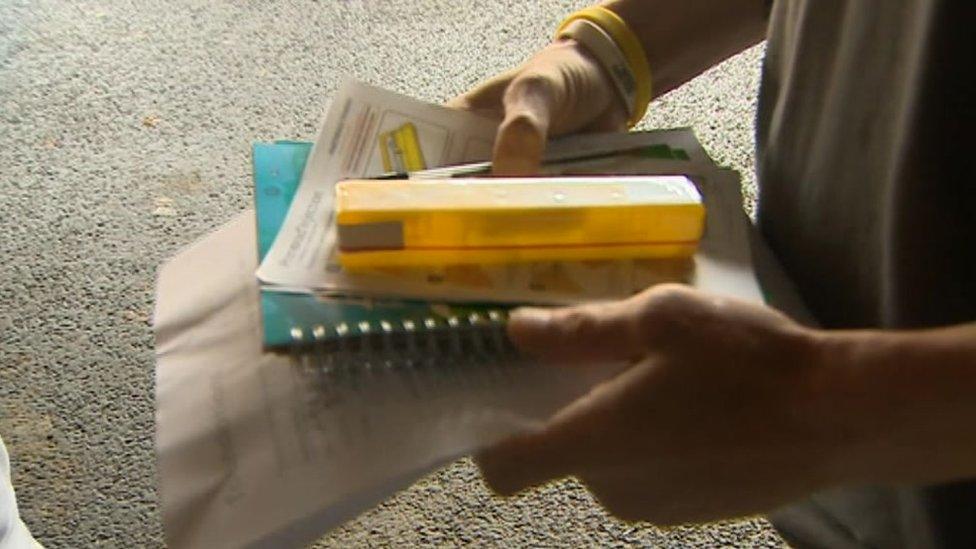
- Published17 March 2021

- Published2 March 2021
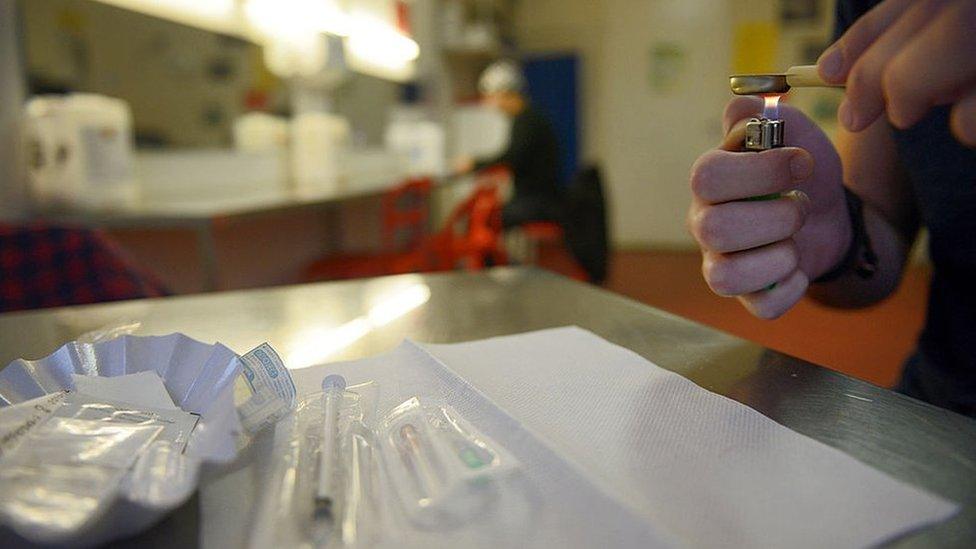
- Published20 January 2021
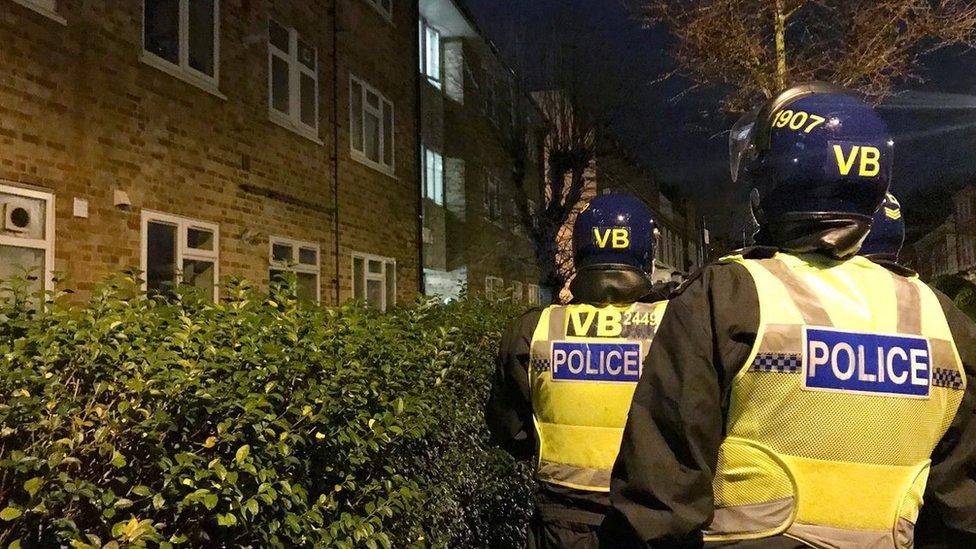
- Published15 October 2020
